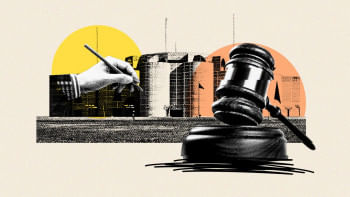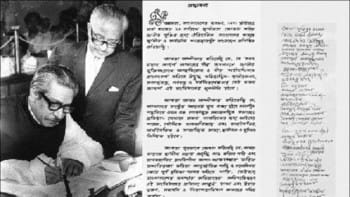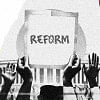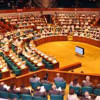Can rewriting the constitution bring real freedom?

In his influential book Development as Freedom, Nobel laureate in economics Amartya Sen argues that genuine freedom is achieved through comprehensive development rather than mere economic growth. He challenges the view that GDP alone can measure development, asserting that real progress is marked by access to essential services like education, healthcare, and transportation, as well as fundamental rights such as voting and freedom of expression. Sen uses Singapore as a case in point, demonstrating that economic advancement does not necessarily equate to freedom of speech or democratic rights.
The debate in Bangladesh over whether constitutional changes are required to ensure development and freedom is a pressing one. There is an assumption that without rewriting the constitution, it might be difficult to safeguard voting and other rights, and that autocracy could return in some form in future. Let's assume that we rewrite the constitution to ensure democracy in Bangladesh and strengthen the judiciary, administrative bodies, law enforcement, and the election commission. We might even alter the way parliament operates to prevent political domination by any single individual. In theory, this could provide comfort that political or elite influence on democratic institutions could be reduced.
However, this might be considered a straw man argument in the context of Bangladesh's political landscape. By straw man, I refer to a fallacy that distorts or oversimplifies an established or meritorious idea to oppose it. For instance, the existing constitution might work effectively even if some argue that changes or a rewrite are necessary. In this context, I argue that advocating for constitutional rewriting is a straw man argument because predicting how any government might turn autocratic again, despite having an ideally crafted constitution, is inherently uncertain. There is no perfect constitutional solution to safeguard democracy. Democracy relies not only on the constitution but also on political culture, education, public awareness, and a collective commitment to democratic principles.
Dr BR Ambedkar, world-renowned writer of the Indian Constitution, expressed this idea clearly in his 1949 Constituent Assembly speech given in the Indian parliament: "…I shall not therefore enter into the merits of the constitution. Because I feel, however good a constitution may be, it is sure to turn out bad because those who are called to work it, happen to be a bad lot. However bad a constitution may be, it may turn out to be good if those who are called to work it, happen to be a good lot. The working of a constitution does not depend wholly upon the nature of the constitution. The constitution can provide only the organs of state such as the legislature, the executive and the judiciary. The factors on which the working of those organs of the state depend are the people and the political parties they will set up as their instruments to carry out their wishes and their politics."
Unless politicians break free from monopolistic or authoritarian attitudes, changing the constitution would not prevent future regimes from prioritising corporate interests over public welfare. Many politicians enter politics with the sole expectation of advancing their own business interests by manipulating the existing system.
Even in the US and the UK, systems designed to limit political interference in judicial and administrative processes ultimately depend on the democratic choices of those in power. For example, the UK does not have a single written constitution, while the US Constitution, despite recent calls for its significant reform, has largely remained intact. In both countries, the strength of basic institutions—such as electoral institutions, judiciary, the law enforcement agencies—ensures democratic stability. While none of these institutions are perfect, they function effectively enough to ensure democracy in the US and the UK. Despite the generally effective functioning of democratic institutions in both countries, concerns about poor governance and cronyism have emerged as significant factors that critics argue may have contributed to loss of the Conservatives in the 2024 election to the Labour Party.
Thus, my argument against attempts at constitutional rewriting in a country like Bangladesh is twofold. First, within neoliberalism, any state following capitalist structures cannot guarantee that the government will refrain from infringing on public interests. Governments aligned with corporate interests always would find ways to undermine even the most robust institutions, whether protected by the best possible constitution (e.g., the US) or lacking a single written constitution (e.g., the UK). For instance, when former US President Donald Trump attempted to influence vote counts in the 2020 presidential election, it was the integrity of electoral officials that prevented him from succeeding. Had these officials been dishonest, the outcome might have been different. In the UK, the electoral commission is fiercely independent, ensuring that the best procedures and standards are followed without compromise.
Second, unless politicians break free from monopolistic or authoritarian attitudes, changing the constitution would not prevent future regimes from prioritising corporate interests over public welfare. Many politicians enter politics with the sole expectation of advancing their own business interests by manipulating the existing system. For example, from stock price manipulation to corrupt tender processes, not to mention the manipulation of grocery prices for higher profits, all are instances of such manipulative behaviour. Therefore, unless a clear separation between business and politics is established, constitutional violations are likely, regardless of how the constitution is rewritten or redesigned.
Currently, what we urgently need is a collective political consensus to transform the political landscape of Bangladesh. Pakistan serves as an example where a lack of political consensus allowed the military to dominate politics. With collective political consensus, the defence forces could have had less influence in Pakistan. Moreover, political actors must reform themselves, as I have discussed in my previous opinion pieces in The Daily Star. Grassroots members of political parties must commit to rejecting authoritarian tendencies in their leaders. Politicians should also be ready to exclude corrupt members from their organisations and have mechanisms to challenge central or topmost party leaders if they exhibit corrupt or autocratic behaviours.
Bangladesh's approach to development must also shift, which is achievable through the existing constitution. Development should focus not only on economic growth but on ensuring fundamental rights: access to free education and healthcare all over the country, efficient transportation, a corruption-free and independent electoral commission, and professional law enforcement bodies, press freedom, not to mention the reinstatement of the caretaker government for the holding of free and fair elections. In addition, individual rights to identity, free speech, and equal opportunities—regardless of gender, religion, or worldview—must be guaranteed. Only when both individual and collective rights are secured, we could hope to achieve societal well-being and freedom, which could be interpreted as real development.
Although change is crucial, it is important to recognise that genuine reform is often slow and challenging. At present, it seems unlikely that the interim government can achieve significant constitutional changes without exacerbating the already existing social, political, and ideological divisions. Their priority should be to address the problems they have inherited from the Hasina-led government through structural reforms so that Bangladesh could have transparent and trustworthy, functional, and independent government institutions which include the judiciary, administrative bodies, law enforcement agencies, and the election commission. A robust reform of these institutions might take years, but the process could be started by the interim government, which then could hopefully be carried forward by the democratically elected next government.
Establishing a commission to assist in democratising political parties could also prevent future constitutional violations and autocratic tendencies. Without democratic political parties, no reform would be effective long-term, and any constitution, whether in its current or future form, would inevitably be violated.
Dr Rashedur Chowdhury is professor of business and management at Essex University. He can be reached at [email protected].
Views expressed in this article are the author's own.
Follow The Daily Star Opinion on Facebook for the latest opinions, commentaries and analyses by experts and professionals. To contribute your article or letter to The Daily Star Opinion, see our guidelines for submission.

 For all latest news, follow The Daily Star's Google News channel.
For all latest news, follow The Daily Star's Google News channel. 











Comments